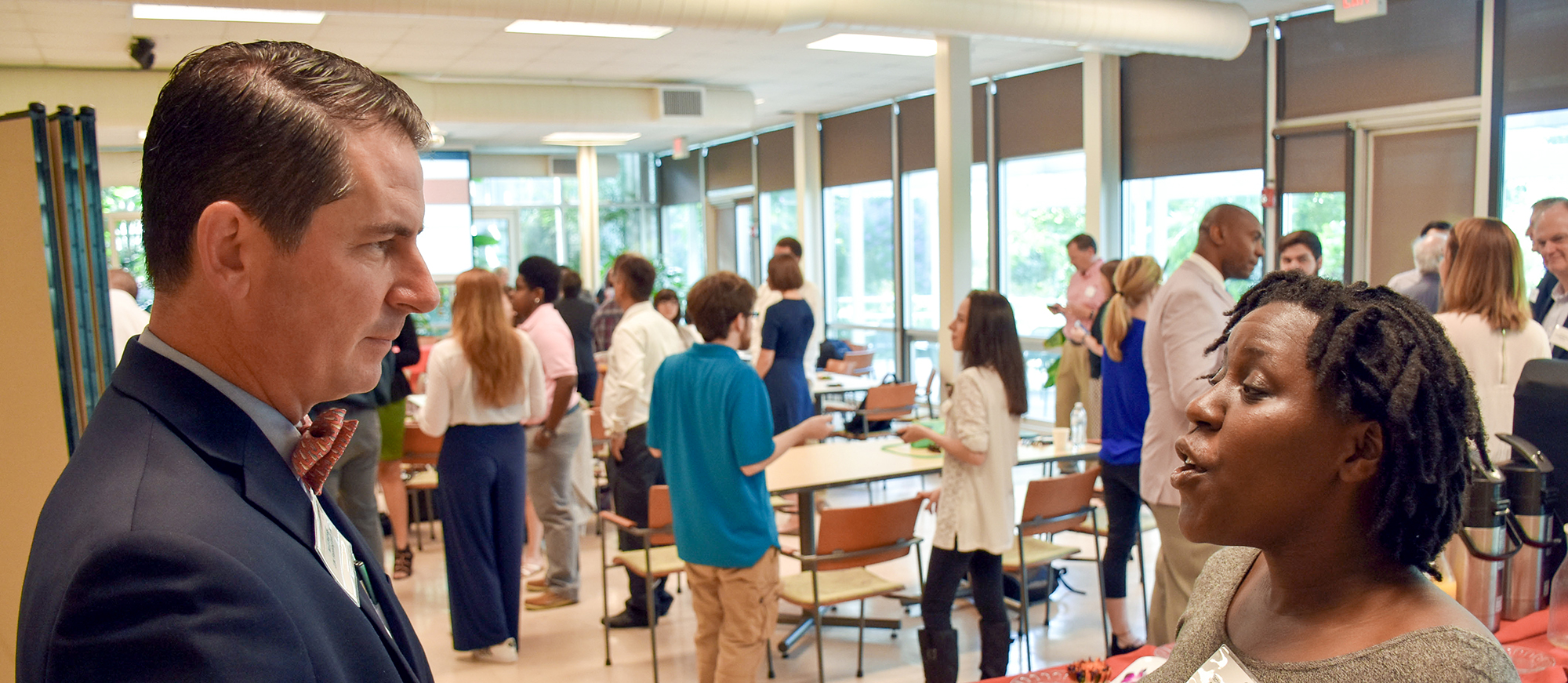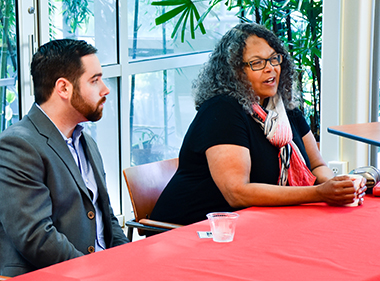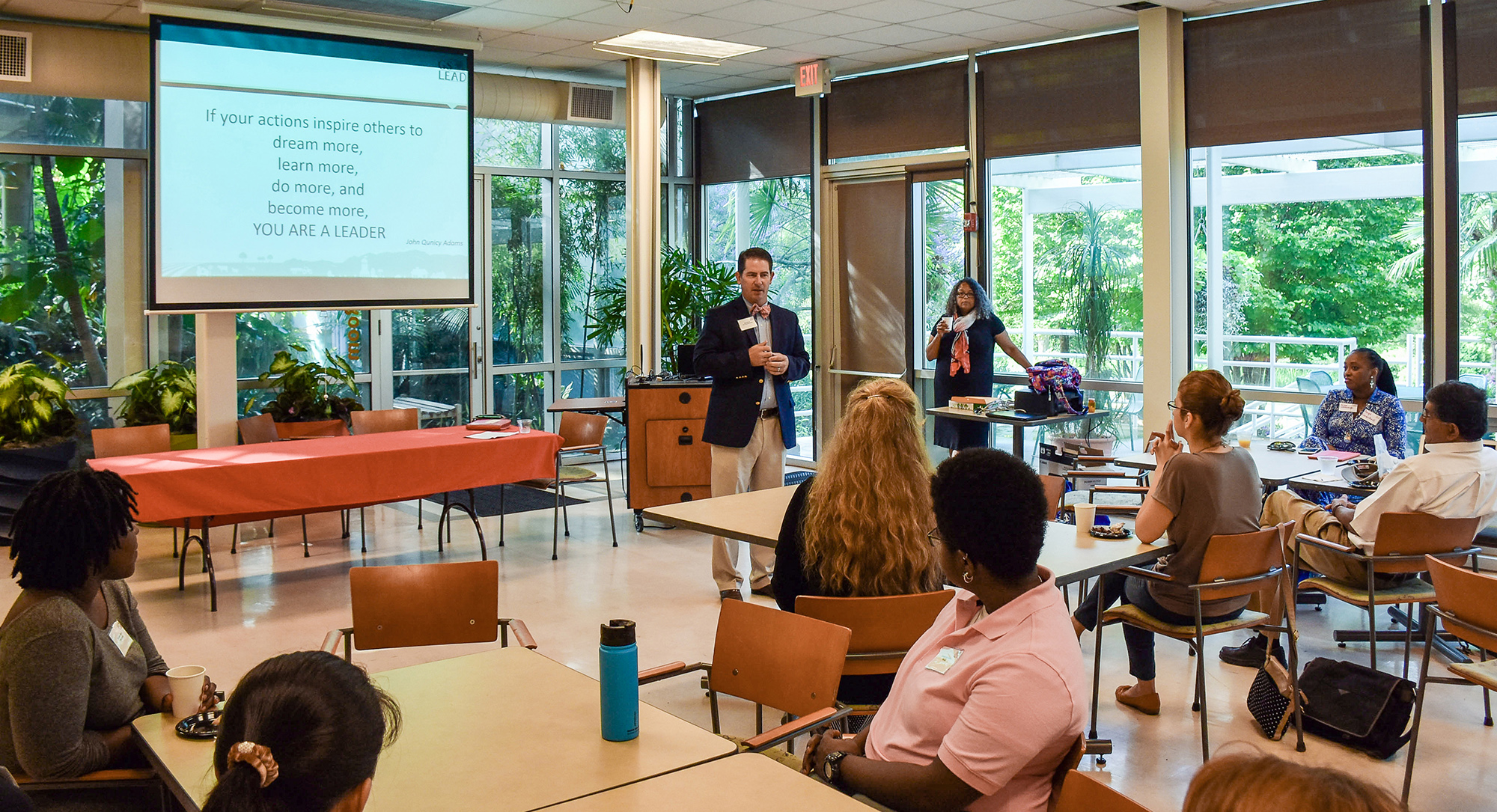Graduate Summer Leadership Academy Selects Student Leaders for Real Life Challenges
By: Cynthia Adams | Photos By: Charlie Bauder
GS LEAD, a new leadership program for incoming doctoral students, began in June 2016. The summer program culminated in a “Challenge” course this past fall organized by the Fanning Institute. The Challenge course was led by Ramana M. Pidaparti, a UGA professor in the College of Engineering and the college’s associate dean for academic programs.
This summer, 16 incoming University of Georgia doctoral students from primarily STEM disciplines (Science, Technology, Engineering and Math) will enter a summer-long academy meant to enrich their academic experience by providing immersive training in critical professional skills that transcend discipline and prepare graduate students for a broad range of career choices. This year marks the second year of the endeavor formally titled Graduate Scholars Leadership, Engagement, and Development. Known as GS LEAD, it is a collaboration between the Graduate School, the Office of the Vice President for Public Service and Outreach, the J.W. Fanning Institute for Leadership Development, the Archway Partnership, the College of Engineering, the College of Education, the College of Veterinary Medicine and the Grady College of Journalism and Mass Communications.
GS LEAD was designed to develop a variety of professional abilities through problem solving and team work concerning real community challenges. The National Science Foundation Innovations in Graduate Education grant funded program was conceived by Julie Coffield and Meredith Welch-Devine. Coffield is former associate dean/interim dean of the Graduate School and Welch-Devine is the director of interdisciplinary graduate studies for the Graduate School.

Fanning Institute Director Matt Bishop talks with one of the students participating in the 2017 GS LEAD Summer Leadership Academy at the opening event on June 15.
“We were very excited when we received the NSF award!” says Coffield. “Our vision was to train STEM graduate students in a new way; to expand their horizons, open their hearts and challenge them to think outside of the traditional, often siloed research setting. We want the students to work in and with communities so that they have a better appreciation of the impact that graduate research has on real problems and real people. Ultimately, we hope that the students will incorporate this commitment to community engagement into their doctoral studies and their careers. The first cohort of students was so amazing and passionate, and I cannot say enough great things about the faculty from across campus who have given their time and expertise to the project.”
The program is funded for three years by the National Science Foundation. “We’re working to secure the program’s future,” says Welch-Devine.
Last year, the Graduate School developed GS LEAD in partnership with various academic and public service units on campus. Fanning faculty members Brandy Walker and Janet Rechtman designed and facilitated the Summer Academy.
Student participants work together on interdisciplinary teams to address community challenges. These challenges require the participants to assume leadership roles in project management and to effectively engage with community stakeholders. Last year, three projects addressed food-related initiatives, one with the Advance Barrow County farm-to-school concept and a second with a community-engaged garden project at the Wimberly Center for Community Development in Winder, Georgia. The third project concerned the Archway Partnership Community’s healthy foods for Spalding County.
“Each team must also draft a project goal, one clearly delineated, and take steps to implement their plan,” says Coffield, who authored the NSF grant with Welch-Devine. The teams worked during the summer course to parse out their approaches. They specified what they hoped to achieve, within what time frame, and what indicators would be used to gauge the outcomes.
In the fall, the students enter the Grand Challenge Course led by Ramana Pidaparti, associate dean of the College of Engineering. Based on the Design Thinking concept, the course develops skills needed to meet the challenges identified during the Summer Academy. Ikseon “Ike” Choi, from the Department of Career and Information Studies, is one of the principal investigators of the project and along with Janette Hill is leading the evaluation phase of the program.
“The program was designed to shape a different STEM graduate with competencies we haven’t traditionally taught,” says Coffield. “These students will experience long-lasting engagement with their community and leave with a different set of abilities.”

IN JUNE, DEAN SUZANNE BARBOUR addressed GS Lead’s opening session, joined by community leaders and faculty members. In her praise for the initiative, she called it an example of “bold, new models in graduate education” offering skills that “reach beyond the laboratory.” GS Lead panelists included Richie Knight, a senior partner with Athens-based H W Creative Marketing, and J. Marshall Shepherd, a professor and director of the Atmospheric Sciences program









